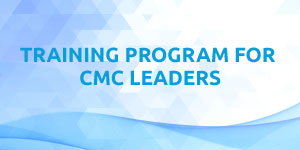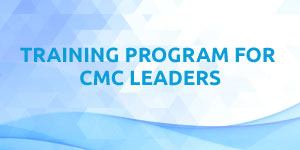Free knowledge to monitor the world of events. Have a look at our must read Blogs on Pharma, Finance, HR, Health and Cross Industry.
On the Corona Crisis (… of course, what else) – Part 1
2020-04-02
Originally I was going to write about sustainability concerning employee treatment. But I will save the topic for later because the events of the last couple of weeks are asking for something more up to date. The situation about the coronavirus pandemic has got many connections to the workplace health and safety and to the way we manage it.
We all live in different countries, and every country has a different strategy to fight with the pandemic. The virus has hit every country with different intensities. Every country is now in a different phase of the pandemic curve. That means that every country has a unique perspective on the current situation. But still, I believe there is a lot left in common, and we can make some general conclusions.
I don’t want to discuss the medical aspects of the situation, nor the possible economic impact for the future. Even though these are important issues, they don’t belong to this blog. My article’s theme is the influence of this whole corona situation on current and future conditions in the workplace with the focus on Occupational Safety and Health.
Facing the unimaginable
We see now, that nobody – perhaps except for few epidemiology or intelligence experts – was able to imagine things, that are happening now, or actually to happen. The question is whether at least we had a theoretical chance to prepare ourselves for something so widespread. Probably not. It appears that we either did not engage enough imagination when sketching the possible scenarios or that we made our critical plans too general and abstract. So even when we had these plans, we felt a bit clueless implementing them.
Challenge for OSH experts
For the OSH related website, I am responsible for in my country. I started to make weekly online spoken sessions. We began on March 20th, 2020, which was the end of the first week, the whole country was closed. Since then, occupational safety professionals can address their questions to us, and during the session, we discuss them with experts. The point of most questions is national legislation and its application. Very often we see, that since our laws and standards are made for the regular times, it is sometimes challenging to apply them in the current situation.
Also, the additional measures issued by the government to help to solve the crisis don’t always go well together with the regulations we have for the calmer times. The terms in these documents suddenly get new meanings and have to be redefined. We see that many things are changing and the acting, we could hardly imagine a couple of days ago, is now our new routine. People learn how to improvise and use the common sense, rather than refer to the documents, regulations, and manuals, because if something, these give them guidance and hints, but not complete answers.
Redefining the notion of risk
A good example here is the risk assessment in these new conditions. Except for a couple of extremely tough branches, I think we have never seen the risk being such a dynamic entity, which needs a re-evaluation almost every day under the influence of the situation develops and as the new pieces of information appear.
We could write endlessly for instance about the protection of the people who go to service despite the lockdown, especially in the conditions of the overall lack of protective equipment.
The Limit Situation
But I would instead take a while and think, what are possible benefits, for the field of Occupational Health and Safety. Maybe we can already see something rising. Something we all will be able to make use of when this all is over.
What we now experience is what psychoanalysis and existentialist philosophy call the Limit Situation. It means that we are going through something that is way far beyond what we consider usual. If this happens to an individual, it transforms his perspective on life and the attitude to things. Something similar can happen to whole societies when the experience is collective.
To give an example: in my country, Czech Republic, overnight people started to wear the mouth masks in public, and after this shift, when you appeared on the street not wearing it, you could tangibly feel the reproachful looks of others on you. People felt that this time it was severe. A couple of days before the government made it mandatory; the pressure was so high that only a few individuals did not succumb to it.
The main idea behind my reasoning is this: with the corona crisis, a new concept entered the mind of almost every person. It is the idea of Thread. Of course, we all had an understanding of the word “thread” before, but with the virus, the concept ceased to be abstract. This fear of the COVID-19 disease has effectively evolved into specific rules of behavior that are said to have the ability to protect us from being infected. I think even the skeptical personalities, can feel the general agreement on the fact, that something dangerous is present (one would even say “in the air “) and feel the societal pressure on sticking to the set of rules, which lead to minimizing the risk of transmitting the infection.
Stay tuned for more insights on the presumed impact of collective experience Thread on safety culture at the workplace!
By Ondřej Vraný. He is the Editor-in-Chief at BOZPprofi.cz with more than 10 years of editorial experience in HSE.
Get a feel for our events

Training Program for CMC Leaders - EU edition
14th September 2026 - 09th April 2027
Rich with practical insights and real-world applications
learn more >>
Training Program for CMC Leaders - US edition
14th September 2026 - 09th April 2027
Rich with practical insights and real-world applications
learn more >>
Advanced Stability Testing of Pharmaceuticals MasterClass - US edition
24-27 February, 2026
Increase the likelihood of studies receiving regulatory approval
learn more >>











